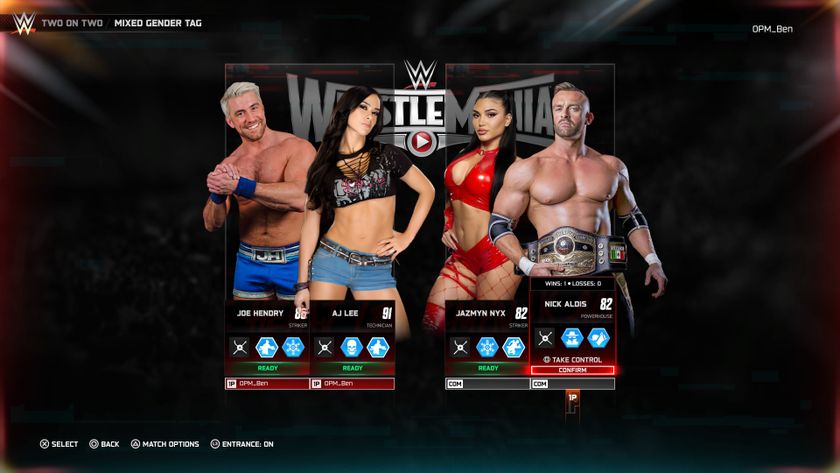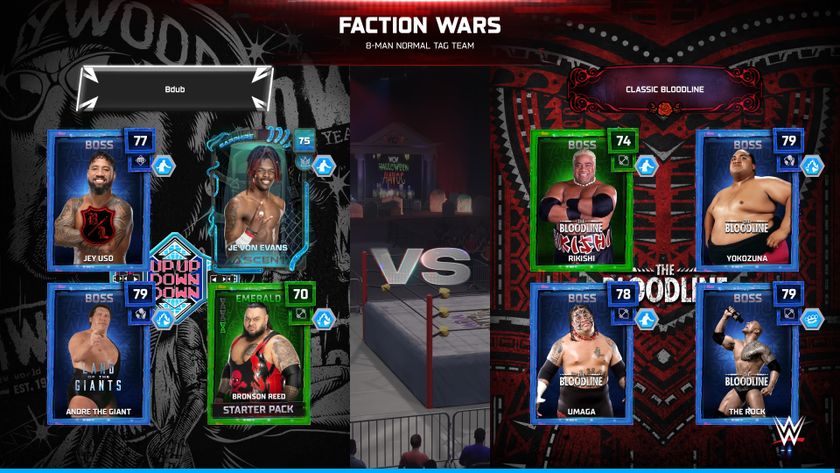How eSports is shaping the future of gaming
Get ready to get competitive
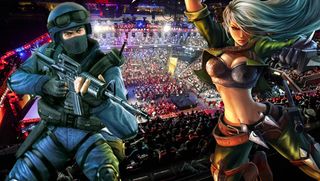
Taking eSports seriously
2012 was noteworthy for many reasons: The Mayan calendar change didnt kill us all, Wendys became the second-best selling hamburger chain, James Bond was at the Olympics, and eSports witnessed incredible increases in the amount of content consumed by viewers. Major League Gaming, the largest North American eSports organization, saw a rise in live viewership of 334% from 3.5 million to 11.7 million. The 2012 MLG Spring Championship alone generated 4.7 million viewers over the weekend, almost half of whom tuned in for the Sunday championship matches. With this unprecedented growth, eSports showed that it wasnt as niche as most people had assumed. It had arrived.
Competitive gaming has historically been centered around PC titles like StarCraft, Counter-Strike, and Quake, with notable exceptions made for fighting games and some shooters like the Call of Duty and Halo series. The rising demand for eSports content clearly demonstrates that there is a huge audience that consoles have been unable to tap into effectively, and game developers have noticed. The next-generation of consoles has adapted to embrace eSports, and many publishers have begun crafting games around it. Here's how it's all shaking out...

The biggest game franchises have already begun adding eSports features
If you're thinking this hasn't started yet, you're wrong. With more integrated eSports features than any other console offering to date, Call of Duty: Black Ops 2 set a new standard for what console eSports offerings should provide. In addition to skill-based matchmaking and enabling streaming while in-game, Call of Duty: Black Ops 2 allows players to commentate or shoutcast matches with ease. Tools are made available to players allowing them to listen in on team dialogue, switch between players, and choose between first-person, third-person, and overhead views of matches.
Treyarchs Call of Duty: Black Ops 2 may not have been the fastest-selling Call of Duty game of all time if it hadnt been designed with eSports in mind. It remains to be seen if next generation titles like Killzone: Shadowfall, a series with a history in the eSports community, will learn from Black Ops 2s exemplary eSports features.
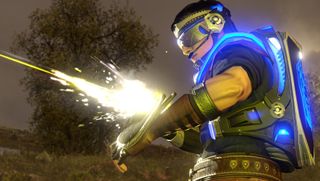
Games are being specifically designed for eSports
Weve seen a massive uptick in games billing themselves as eSports titles in recent years. League of Legends, World of Tanks, and Warface have been some new faces on the scene, while classic eSports titles like Street Fighter and Halo have taken steps to facilitate better competitive gaming experiences with online matchmaking and replay modes.
Looking to the future, a number of purely multiplayer, eSports games have been announced for both PCs and consoles. ShootMania, a fast-paced, multiplayer shooter, is an example of a title that was explicitly made with eSports in mind. In fact, developer Nadeo went so far as to bring professional gamers on stage to demo the game during E3 2012. EVE Online developer CCP plans to support eSports functionality in Dust 514, allowing spectators to place bets on the outcomes of deathmatches. CCP has made several statements indicating that they are planning an eventual launch of a PS4 version of Dust 514, which, coupled with the console's "Share" functionality, should make for some raucous live streams.
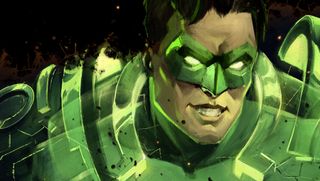
Everyone is making a MOBA
The Multiplayer Online Battle Arena (MOBA) is a genre spawned by the WarCraft 3 mod Defense of the Ancients (DotA), and it is the perfect setup for an eSport. Being able to correctly read the enemy teams movements and effectively communicate with teammates, as well as knowing when to attack or retreat, are all vital parts of professional MOBA play. However, what really sells the genre is its accessibility to people of all skill levels. Most MOBA games rely on only six buttons and a mouse, making them very easy to pick up and play for just about anyone. This ease of entry into the MOBA world means that people who have had even a small amount of interaction with one can understand and appreciate professional gameplay.
In many ways, it feels like MOBAs are the perfect eSports game--complex enough to appreciate, easy enough to understand. And everyone is making one. Valves Dota 2 and Riot Games League of Legends are the two most well-known successors to DotAs throne, but there are also Heroes of Newerth, Smite, Infinite Crisis, and plenty of others. At GDC 2013 we met with multiple developers, all making new MOBAs in hopes of tapping into the competitive market. The genre has proven so popular that the previously PC-bound genre has experienced a push toward consoles, with games like Awesomenauts and Guardians of Middle-Earth adapting the genre to controllers.
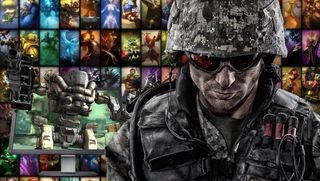
Free-to-play is the future, and eSports is to thank/blame
Titles focused on professional gaming popularized the microtransaction-based free-to-play payment model and removed the negative impression many gamers had of these games. Initially, free-to-play implied a lack of polish or quality, but over time, the nature of the stigma changed as business model started becoming more popular with the eSports community.
The massive success of games like League of Legends, where content that is paid for is merely cosmetic and provides no tangible benefits during gameplay, demonstrated that pay-to-win wasnt the only way to design a free-to-play game. Many publishers and developers are now exploring various free-to-play options. Coming at the tail-end of the current generation, we are seeing free-to-play games on consoles like Happy Wars, Ascend: New Gods, and Dust 514, as well as traditional PC offerings like Blacklight: Retribution, Planetside 2, and Hawken. The numerous free-to-play offerings that have been unveiled and brought to the table recently prove that this payment model isnt going away anytime soon.

eSports appeal forced next-gen consoles to adapt
Console manufacturers are forging new alliances with companies that handle streaming as well as integrating new technology to facilitate eSports operations on their hardware. Consolidating essential functions for eSports enthusiasts and professionals like streaming, viewing, messaging, and uploading all in one place eliminates a number of the difficulties involved in carrying out these tasks on current hardware. Those same activities on the machines we have today require a variety of expensive equipment. Capture cards and an internet connection that allows for an upload speed of at least 1.5 MB per second arent cheap. In addition to all of the equipment required for consoles, acquiring the knowledge of how to set it up and run the various programs can be a daunting task. Sonys answer to this problem lies in the PS4 "Share" button, which eliminates this problem by allowing players to begin streaming online with the press of a button. The deals Sony has inked with both Gaikai and Ustream are significant, as both ensure that streaming features will be running smoothly and intuitively on the PS4.
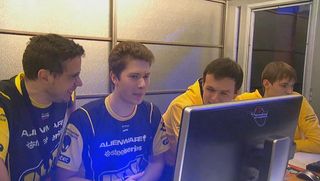
It created a new field of jobs in the games industry
One of the most overlooked aspects of eSports is that many people are employed both in front of the camera and behind the scenes at major tournaments and organizations. What the average gamer thinks of when they hear about professional gaming jobs are, naturally enough, the competitors. They travel the world competing in major tournaments for hundreds of thousands and sometimes millions of dollars. Then there are the shoutcasters who can quickly and accurately relay information in an entertaining manner.
It might be easy to fixate on the players and shoutcasters because they are always front and center during events, but they arent alone in putting together eSports events. The people behind the magic work quietly to build the competition stages, work with the acoustics, set up and operate the streaming equipment, and fix any technical hiccups that may occur--and, of course, there are the developers that work to integrate eSports into their games. When big name developers and publishers like LucasArts and THQ are shuttering up, it is refreshing to see at least a part of the industry that isnt just subsisting, but growing.
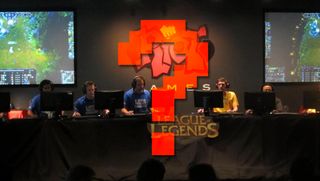
In the future
This generation of consoles has seen an increasing focus on online connectivity, and that's facilitated the rising availability of competitive titles and the adoption of eSports content. The next-gen can only improve and expand the already thriving eSports community. By bringing these aspects to the console space, Microsofts and Sonys desire to tap into the previously PC-dominated market has already had a hand in shaping the end of our current console generation. Weve had a glimpse of what is to come with the PS4 announcement, but you can be sure that there are even greater things to come in which eSports will have an influence. The future of eSports looks fantastic.
And if you're looking for more, check out 31 free games you can play right now and best F2P MMOs.
